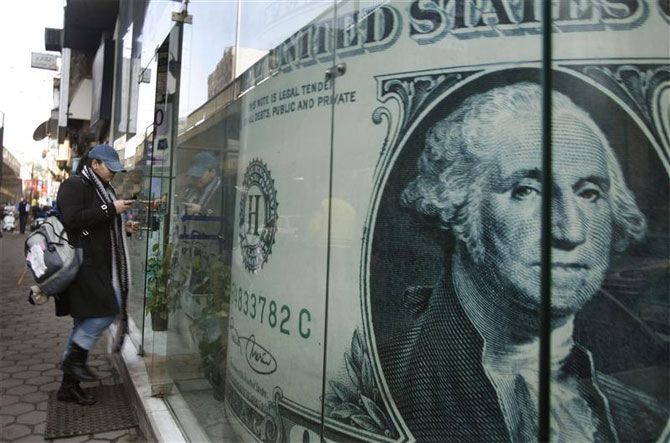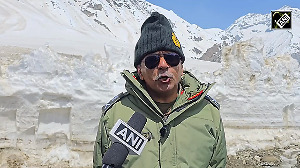 The Federal Reserve is expected to keep interest rates unchanged on Wednesday and may struggle to convince skeptical investors it can tighten monetary policy before the end of the year in the face of US and global economic headwinds.
The Federal Reserve is expected to keep interest rates unchanged on Wednesday and may struggle to convince skeptical investors it can tighten monetary policy before the end of the year in the face of US and global economic headwinds.
The world's most powerful central bank hasn't hiked rates in about a decade and markets see virtually no chance it will do so at the end of this week's two-day policy meeting.
The Fed is scheduled to announce its rate decision at 2 pm.
A spate of dismal data on the U.S. and global economies has fueled a public row between Fed Chair Janet Yellen and fellow policymakers, igniting speculation the central bank will wait until 2016 to begin its "liftoff" from near-zero rates.
Forty-six economists polled by Reuters unanimously expect the Fed on Wednesday to keep its target rate for overnight lending between banks steady at 0 per cent to 0.25 per cent, as it has since 2008 when it embarked on an effort to nurse the economy back from a severe recession.
A narrow majority of the economists expect a rate increase in December.
Financial markets assign only a 30 per cent chance for a December hike and a 54 per cent chance for such a move in March.
Signaling that a rate hike is coming will be difficult in part because Yellen, who has said higher rates will be "appropriate" this year, is not scheduled to hold a news conference after the end of the policy meeting.
The Fed could lay some of the tightening groundwork by using its policy statement to signal it has fewer concerns about global growth.
Recent US economic reports, however, have raised doubts about the strength of the world's largest economy, and it could be weeks before central bankers have enough new data to feel comfortable lifting rates.
That means the statement on Wednesday could resemble the one from last month's policy meeting.
But September's disappointing employment report - non-farm payrolls grew by only 142,000 - has cast doubt on the sustainability of the jobs recovery and undercut the argument for hiking rates.
"It pays for them to take the low-risk path of least resistance and not really change things in a big way, and then see how the data is," said Michael Feroli, an economist at JPMorgan.
'NOT-THIS-YEAR CAMP'
Most Fed policymakers have said they expect to raise rates in 2015, but two broke ranks with Yellen this month, questioning her view that labor market tightness will fuel inflation and overheat the economy.
Fed Governors Lael Brainard and Daniel Tarullo urged caution, arguing slower growth abroad could sap U.S. economic strength and keep inflation too low.
With Chicago Fed President Charles Evans, that puts three members of the rate-setting Federal Open Market Committee in the "not-this-year camp".
Compounding the situation, central banks from the euro zone to China are easing policy, keeping upward pressure on the US dollar which hurts American exporters and acts as a brake on inflation.
That, in turn, is complicating Yellen's job to guide the Fed and seek consensus within the FOMC.
The Fed's struggle to communicate clearly under Yellen, who took the reins of the central bank less than two years ago, raises the risk investors will be overly surprised by policy changes, leading to financial market volatility and further straining the global economy.
It also raises the risk of greater splits and miscommunication that could derail the rates liftoff.
Economists expect Yellen's scheduled public appearances in December, which will come after hiring data for October is released, could offer a better idea as to whether a hike will come at the Dec. 15-16 policy meeting, the last of the year.
"We look for very minimal changes in the statement and ... for verbal communications after the meeting, in speeches and interviews, to say, 'Yes, December remains a possibility,'" said Michael Gapen, Barclays' chief US economist.










 © 2025
© 2025